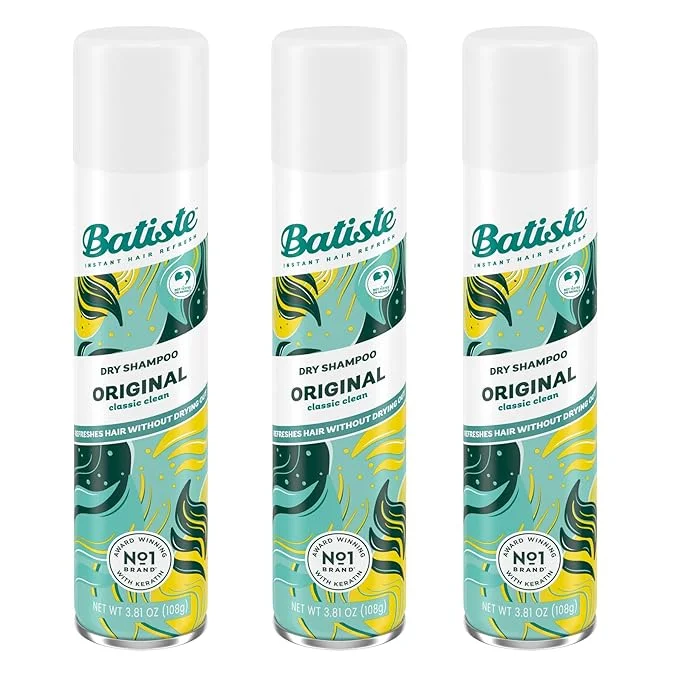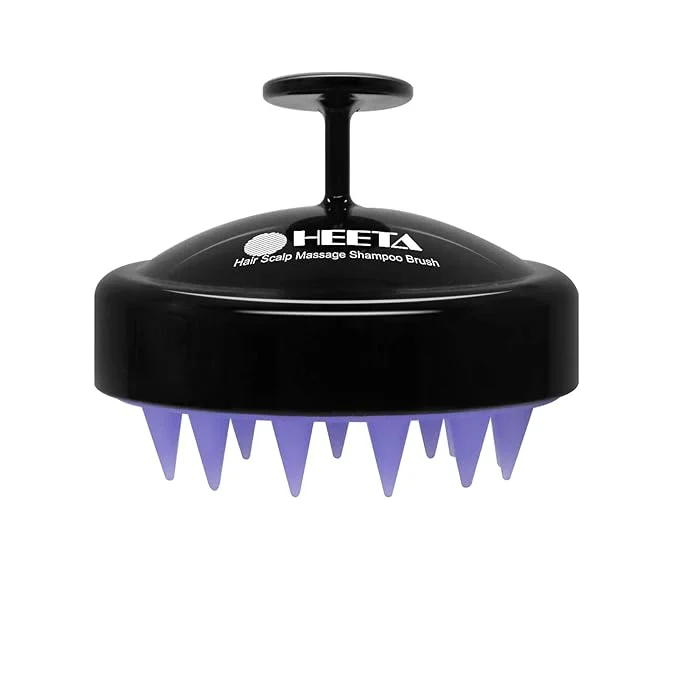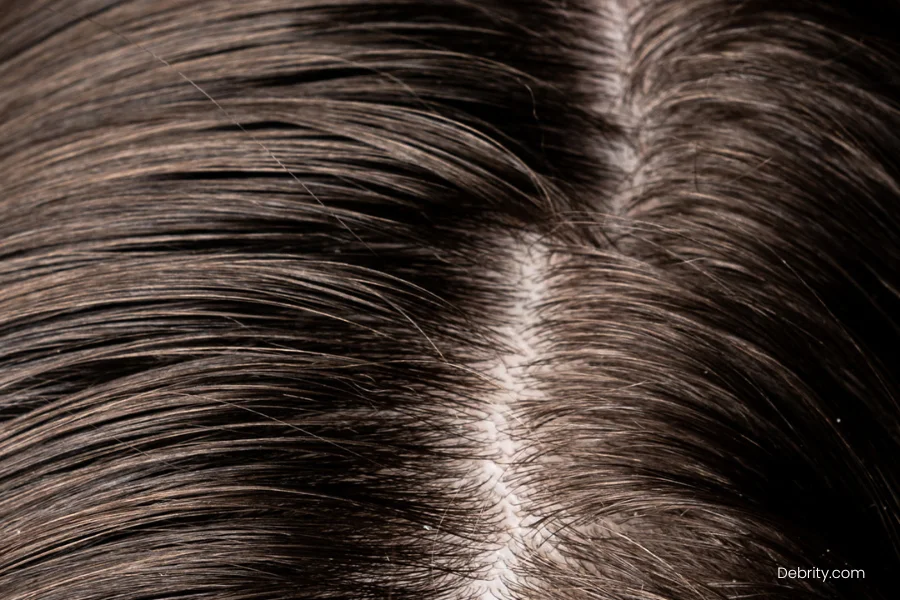This Post Was All About Why Does My Hair Get Greasy So Fast?
Do you ever feel like you’re in a never-ending battle against a greasy scalp, even after washing your hair diligently?
It can be such a relentless cycle: shampoo, rinse, and still, a day later, you’re left with limp and greasy strands. Many of us find ourselves wondering, “Why does my hair get greasy so fast?” It’s a frustrating issue, and it can be a serious blow to confidence, making you feel like you’re not quite ready to face the world.
In this article, we’ll unravel why some people seem to be fighting a constant battle with greasy hair.
We’ll explore the culprits behind rapid oil build-up and what you can do to manage it. From hair type to lifestyle habits and product usage, we’ve got all the answers you need. Stick with us, and let’s get into why your hair gets greasy so quickly and how you can keep those strands fresh for longer.
Why Does My Hair Get Greasy So Fast?
Understanding Why Hair Gets Greasy So Fast
One of the most exasperating things about hair care is that greasy feeling why does it happen so soon?
The answer lies beneath the surface, literally. The scalp produces a natural oil known as sebum, secreted by sebaceous glands that rest snugly at the base of each hair follicle. Sebum’s role is to moisturize and shield the scalp and hair. It’s a good thing until it’s not.
When sebum production goes into overdrive, your hair ends up looking greasy, lifeless and weighed down. Sebum is a double-edged sword: it’s essential for keeping hair healthy, but too much of it?
Your hair becomes a greasy mess. A combination of factors influences sebum production, including your hair type, the frequency of washing, hormonal influences, and other lifestyle choices. Understanding these factors helps you take control of the oily chaos.
Hair Type and Its Role in Greasiness
Your hair type plays a major role in how oily your hair gets. If you have fine or straight hair, you may have noticed it becomes greasy much more quickly compared to those with curly or coarse locks. Why?
Straight hair allows sebum to move effortlessly from the roots down to the ends. It’s like a slick, well-paved highway for the oil. Curly hair, in contrast, creates bends and curves, making it more difficult for sebum to spread evenly, which is why those with curls often enjoy a little extra volume before the greasiness sets in.
Moreover, fine hair has more individual strands per square inch, which translates to more sebaceous glands. More glands mean more oil production it’s a simple equation that explains why fine hair types often struggle with greasiness. The odds, in this case, are stacked against you.
Overwashing: A Surprising Culprit
It seems logical: wash your hair more often, and get rid of the grease, right? Wrong. Overwashing is one of the biggest contributors to greasy hair. When you strip away the natural oils with frequent washing, your scalp goes into overdrive trying to replace them, producing even more sebum than before.
It’s like a defense mechanism your scalp believes it’s being attacked and responds by turning the sebaceous glands up to eleven.
This vicious cycle leads to hair that feels greasy just a day or even hours after washing. If you find yourself thinking, “Why does my hair get greasy so fast even after washing it?” overwashing might be the real enemy.
Try spacing out your washes, maybe every two to three days, to allow your scalp to reset its natural oil production.
Hormones: The Grease Triggers Within
Hormones those pesky, powerful regulators that seem to have a say in just about everything. The production of sebum is significantly influenced by hormonal fluctuations. Whether it’s puberty, pregnancy, menstrual cycles, or stress-induced hormone shifts, all of these can lead to increased oil production.
Teenagers, especially, experience dramatic hormonal surges that lead to overactive sebaceous glands, making greasy hair a hallmark of adolescence. Pregnancy and monthly hormonal changes can also have the same impact.
While these hormone swings are often inevitable, managing stress, maintaining a balanced diet, and finding the right products can help you minimize the greasy aftermath.
Diet’s Influence on Hair Greasiness
Yes, what you eat affects your hair believe it or not. A diet full of processed foods, refined sugars, and unhealthy fats can directly influence sebum production.
High insulin levels caused by sugary, processed foods can signal your body to increase oil production, leaving you with a greasy scalp.
To combat this, shift towards a balanced diet that includes leafy greens, lean proteins, and healthy fats. Omega-3 fatty acids, zinc, and vitamins like B and E are your scalp’s best friends.
Not only do they help maintain the overall health of your hair, but they can also keep sebum production in check, giving you a fighting chance against that greasy buildup.
Product Build-Up: A Grease Magnifier
What we put in our hair can exacerbate the problem of excess oil. Hair serums, conditioners, and heavy styling products can accumulate on the scalp, mixing with sebum to form a greasy, grimy residue that weighs your hair down. Product build-up clogs follicles, contributing to an oily mess that just won’t quit.
If you notice that your hair gets greasy quickly, it’s time to reassess your product lineup. Avoid those packed with silicone or heavy oils. Instead, opt for lightweight products, and use a clarifying shampoo once a month to clear away the buildup.
A clean scalp is a happy scalp, and the less residue, the less greasiness you’ll have to deal with.
Keep Your Hands Off Your Hair!
This one seems innocent enough but can have a major impact on greasiness. Every time you touch your hair, you’re adding more oils from your fingers to your scalp and strands. Touching, twisting, and constantly fixing your hair although habits that might feel natural are making it greasier.
The oils on your hands are transferred to your locks, compounding the existing oiliness. So, if you’re fidgety, try tying your hair back, and keep those hands away as much as possible. The less you touch, the longer your hair will stay grease-free.
Genetics: The Oil Blueprint
Sometimes, greasy hair is written in your DNA. If your parents struggled with oily hair, you might, too.
Genetic predisposition can dictate how much sebum your sebaceous glands produce. It’s just part of who you are your scalp’s way of keeping things moisturized.
While you can’t change your genes, you can control how you handle the greasiness. Regular care, washing less frequently, choosing appropriate products, and leading a healthy lifestyle can all help mitigate the impact of those genes.
Play the cards you’ve been dealt smartly, and you’ll find the solution that works best for you.
You might like: How I Cleared My Skin in 10 Weeks
Environmental Factors: Humidity and Pollution
Humidity is the nemesis of clean hair. In humid weather, the scalp’s sebum production increases, making greasiness inevitable. Pollution adds another layer of grime, mixing with your natural oils and causing the scalp to feel dirtier, faster.
One of the easiest fixes for combating environmental factors is using a lightweight dry shampoo. Dry shampoos absorb excess oils and add a bit of volume, which can keep your hair looking fresher longer, especially on humid days.
Batiste Dry Shampoo is a highly rated dry shampoo that can do wonders for absorbing excess oil and adding freshness to your hair. You can conveniently place an affiliate link for your readers to find this product.

Your Hair Care Routine Matters
Finally, adopting a solid hair care routine is essential for keeping greasiness under control. Sulfate-free shampoos are gentler on your scalp and won’t strip away all the natural oils, allowing sebum production to balance out over time. Use conditioner sparingly, focusing on the ends rather than the roots to prevent added oiliness.
Consider using a scalp exfoliating brush, which helps scrub away dead skin cells and product build-up, ultimately allowing your scalp to breathe better. This routine will support a less oily, healthier scalp, keeping your hair looking and feeling fresh for longer.

Greasy hair it’s annoying, it’s deflating, but it doesn’t have to be forever. From the hormonal rollercoaster to overwashing, diet mishaps, or even simply touching your hair too much, greasiness has numerous culprits. By recognizing why it happens and adjusting your habits, you can reduce that greasy feeling significantly. With a few changes whether dietary, routine-related, or through the products you use you’ll find that it’s possible to maintain hair that looks fresher and more voluminous for much longer.
Have you struggled with greasy hair, or do you have tips to share? We’d love to hear about your experiences! Feel free to leave a comment below, and let’s keep the conversation going.

